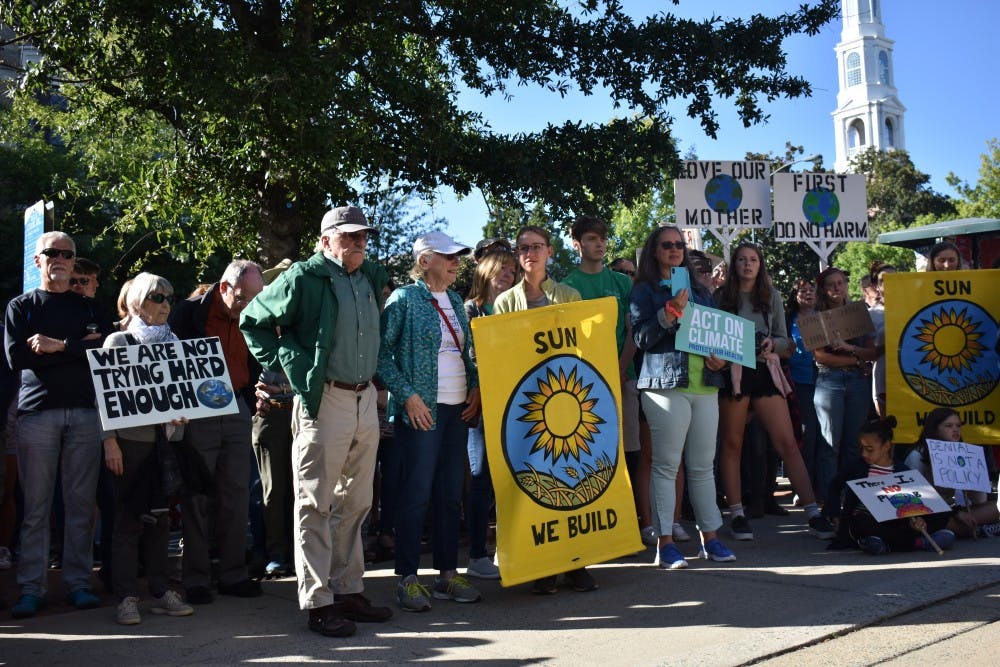Chanting, shouting and passionate calls to action could be heard on Franklin Street Friday morning from the rally of people outside of the Chapel Hill Courthouse at the Peace and Justice Plaza.
Students and activists gathered for the Chapel Hill Climate Strike at 9 a.m. on Sept. 20, walking out of class or work to demand action against global climate change.
Students appeared not only from UNC, but also from Duke University, and various Chapel Hill and Carrboro high schools. Professors, teachers and other community members were also present.
The event was supported by organizations such as the Center for Biological Diversity, Sunrise Movement and Carolina Young Democratic Socialists of America.
The goal of the strike was to showcase citizens’ intent in pushing for local environmental justice to contribute to greater global change, such as the implementation of the Green New Deal in Chapel Hill and putting an end to the use of the local coal-fired power plant.
UNC remains the only institution of higher learning in North Carolina still operating a coal-fired power plant, according to the Center for Biological Diversity.
In 2010, former UNC Chancellor Holden Thorp pledged to the community that the plant would be shut down by 2020. But despite these promises, UNC recently renewed the permits.
The University’s decision to continue operating the plant has led to health concerns in communities of color and UNC’s South Campus, according to the event’s Facebook page. The organizations also cited concerns over the plant's production of high levels of sulfur dioxide and nitrogen dioxide.
Equipped with artistic posters and banners, participants lined the sidewalks to cheer and listen to speeches from activists.



